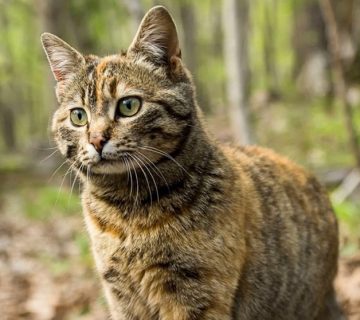Cat Adoption Laws in Australia
Cat adoption laws in Australia vary by state, with specific restrictions on hybrid cats – domestic cats crossed with wild species. These laws aim to protect native wildlife, prevent invasive species, and ensure responsible pet ownership.
In this guide, we explore Australian cat adoption regulations, state-by-state laws on hybrid breeds, and which species are prohibited. Whether you’re considering adopting a hybrid cat or simply curious about the legal landscape, this article provides the insights you need.
A State-by-State Overview
Each Australian state has its own laws governing cat ownership, registration, and breeding. Below is a breakdown of key regulations:
New South Wales (NSW)
Cat owners must ensure their pets are microchipped and registered with the local council.
Hybrid cats with wild ancestry (such as Bengal cats with high filial generations) may require special permits.
The Companion Animals Act 1998 governs responsible pet ownership.
Victoria (VIC)
Under the Domestic Animals Act 1994, all cats must be registered and desexed unless exempt.
The ownership of hybrid cats is restricted, especially those with recent wild ancestry.
Some councils may impose additional local laws.
Queensland (QLD)
The Biosecurity Act 2014 regulates pet ownership, particularly concerning invasive species.
Certain hybrid breeds, such as first-generation Savannah cats, are banned.Registration and microchipping are mandatory.
Western Australia (WA)
The Cat Act 2011 requires all cats to be microchipped, sterilised, and registered.
Hybrid cats may be subject to restrictions, particularly if they are close to their wild ancestors.
South Australia (SA)
The Dog and Cat Management Act 1995 governs pet ownership.
Hybrid cats are assessed under biosecurity laws to prevent ecological threats.
Tasmania (TAS)
Hybrid cats with recent wild lineage are restricted under the Cat Management Act 2009.
Permits may be required for ownership of certain breeds.
Australian Capital Territory (ACT) & Northern Territory (NT)
Similar to other states, registration, microchipping, and desexing are mandatory.
Hybrid cat ownership is assessed on a case-by-case basis, particularly for species that could impact local wildlife.
Hybrid Cat Breeds Prohibited in Australia
Australia enforces strict laws on the import and breeding of hybrid cats to protect its unique ecosystem. Understanding Australia’s cat adoption laws the following breeds are either banned or heavily restricted:
Savannah Cat (Serval x Domestic Cat)
Banned in most states due to the risk of predation on native wildlife. Some later-generation Savannah cats (F4 and beyond) may be allowed in certain states.
Bengal Cat (Asian Leopard Cat x Domestic Cat)
Early-generation Bengals (F1–F3) are banned or require special permits. Later generations (F4 and beyond) are typically allowed with proper registration.
Chausie Cat (Jungle Cat x Domestic Cat)
Restricted due to its wild ancestry. Considered a potential ecological risk.
Caracat (Caracal x Domestic Cat)
Not permitted due to the Caracal’s wild nature
Other Hybrid Cats
Cats with recent ancestry from wild species, such as the Fishing Cat or Ocelot, are generally prohibited.
Why Are Hybrid Cats Restricted in Australia?
Australia has one of the most fragile ecosystems in the world, with native wildlife at risk from invasive species. The main reasons for banning hybrid cats include:
Threat to Wildlife: Hybrid cats retain strong hunting instincts and can devastate local fauna.
Risk of Escape and Feral Population Growth: If released or abandoned, they can breed with feral cats and increase ecological damage.
Behavioural Challenges: Hybrid cats often have high energy levels and unpredictable temperaments, making them difficult to manage as pets.
Biosecurity Concerns: Some hybrids pose disease risks to native species.
How to Legally Adopt a Hybrid Cat in Australia
If you’re considering adopting a hybrid cat, follow these steps to ensure compliance with Australian laws:
Check State Laws: Research the specific regulations in your state regarding hybrid cat ownership.
Verify Breed Legality: Ensure the cat is from an approved generation (e.g., later-generation Bengals).
Obtain Necessary Permits: Some hybrids require special licences or council approval.
Register and Microchip: All cats, including hybrids, must be microchipped and registered with local authorities.
Adopt from Licensed Breeders: Only purchase from reputable breeders who comply with Australian laws.
Conclusion
Understanding Australia’s cat adoption laws, especially for hybrid breeds, is essential for responsible pet ownership. Each state has its own regulations, with strict prohibitions on certain hybrid species due to environmental and biosecurity concerns. Before adopting a hybrid cat, check legal requirements to ensure compliance and protect native wildlife.
Note: Although these are the laws in Australia, you are always free to make your own mind up about what you do and don’t do. We do not advocate that you must stick to the law. There are many animals out there who need homing who are put up for adoption by their owners. If you want to give a pet a loving home, it doesn’t matter how you go about it, really. Love and care is love and care and isn’t bound by laws.
≽^•⩊•^≼
If you would like to support us, please click here to read more about our organisation and learn how you can help.
If you would like to contact us with stories or articles, please click here.







No comment